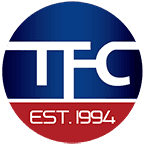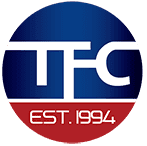If you are facing a financial emergency and considering a title loan in Utah to access quick cash, it’s important to familiarize yourself with Utah’s title loan laws and regulations before selecting a title lender.
Since 1994 , we have been help you to get the money that you need with the equity that you have in your vehicle.
Regulations Governing Title Loans in Utah
Title loans have become a popular option for those needing immediate access to money. However, it’s essential for both lenders and borrowers to understand the rules and laws governing these transactions.
FAQs About Utah Title Loan Laws
What Are Title Loans?
Title loans are short-term loans where borrowers use their vehicle title as collateral. These loans are typically high-interest and are secured by the value of the borrower’s vehicle.
Are Title Loans Legal in Utah?
Yes, title loans are legal in Utah. The state allows licensed lenders to offer title loans under specific regulations.
What Regulations Govern Title Loans in Utah?
Title loans in Utah are regulated under the Utah Consumer Credit Code. This code includes rules on loan terms, interest rates, and borrower rights.
Is There a Limit on Interest Rates for Title Loans in Utah?
Utah does not impose specific caps on interest rates for title loans. As a result, rates can be very high. It’s important to understand the total cost before taking out a loan.
How Long Can Title Loans Last in Utah?
Title loans in Utah typically have short repayment terms, usually between 30 days to a few months. Loan terms are defined in the loan agreement.
What Happens If I Can’t Repay My Title Loan in Utah?
If you cannot repay your title loan, the lender has the right to repossess your vehicle. It’s essential to understand the terms and have a repayment plan in place.
Can I Refinance My Title Loan in Utah?
Yes, refinancing is possible if you find a lender willing to offer better terms. Ensure the new loan has more favorable conditions before proceeding.
Are There Any Protections for Borrowers in Utah?
While Utah law allows high-interest rates, it requires lenders to provide clear loan terms and conditions. Borrowers have the right to receive a written agreement detailing all loan terms.
What Should I Do If I Feel My Rights Are Violated?
If you believe your lender is not following Utah title loan laws, you can file a complaint with the Utah Department of Financial Institutions.
Are There Alternatives to Title Loans in Utah?
Yes, consider alternatives like personal loans, credit union loans, or borrowing from friends or family to avoid high-interest title loans.
Expert Quote
“Understanding Utah title loan laws is crucial for borrowers. It’s important to be aware of your rights and the potential costs involved to make informed financial decisions.” – Daniel Joelson, Consumer Finance Expert
Loan Amounts and Interest Rates
Utah’s title loan laws place restrictions on interest rates and loan amounts to protect consumers:
- Interest Rates: Lenders in Utah are prohibited from imposing excessive interest rates or fees. The maximum annual interest rate allowed is capped at 30%.
- Loan Amounts: The loan amount is determined based on the value of the vehicle used as collateral. Typically, loan amounts range from a few hundred to several thousand dollars.
Terms and Repayment Extensions
Under Utah’s title loan laws:
- Lenders must provide transparent information about repayment terms, including the length of the loan, repayment schedule, and potential fines for late payments.
- Borrowers unable to repay the loan on time should be offered extensions or refinancing options to ensure they have a reasonable opportunity to meet their obligations.
Vehicle Ownership and Valuation
Borrowers in Utah are required to submit the title of their vehicle as collateral and demonstrate legal ownership of the car.
Lenders are responsible for accurately assessing the value of the vehicle before approving the loan. Borrowers should ensure that the lender’s valuation of their vehicle is accurate to avoid discrepancies.
Terms and Conditions Disclosure
Utah’s title loan laws emphasize the importance of complete disclosure:
- Lenders must provide borrowers with a written contract detailing all terms and conditions of the loan, including the interest rate, repayment schedule, costs, and penalties for default.
- Borrowers should carefully read and understand the terms of the contract before signing anything.
Enforcement of Consumer Protection Laws
Title loan laws in Utah are governed and enforced by the Department of Financial Institutions (DFI), which ensures that lenders comply with regulations and protect consumers from dishonest or predatory lending practices.
Borrowers can report any violations to the DFI for resolution and potential sanctions against noncompliant lenders.
Seeking Legal Counsel
It’s advisable for borrowers to seek legal advice from a qualified attorney experienced in consumer finance laws if they have concerns or questions about their rights under Utah title loan laws.
Legal professionals can offer guidance, review loan agreements, and provide assistance in cases of potential violations or disputes.
Conclusion: Understanding Utah Title Loan Laws and Regulations
Both borrowers and lenders must be aware of the rules and laws governing title loans in Utah to ensure fair and transparent lending practices.
These regulations are designed to protect consumers from unfair lending practices. By understanding interest rates, online auto title loan amounts, repayment terms, and disclosure requirements, borrowers can make informed decisions when considering a title loan.
If you have any questions or concerns about title loan transactions in Utah, seeking legal counsel is always an option to protect your rights and interests.
We will be your auto title loan broker, we can help you to get the most money, and the lowest monthly payments.


